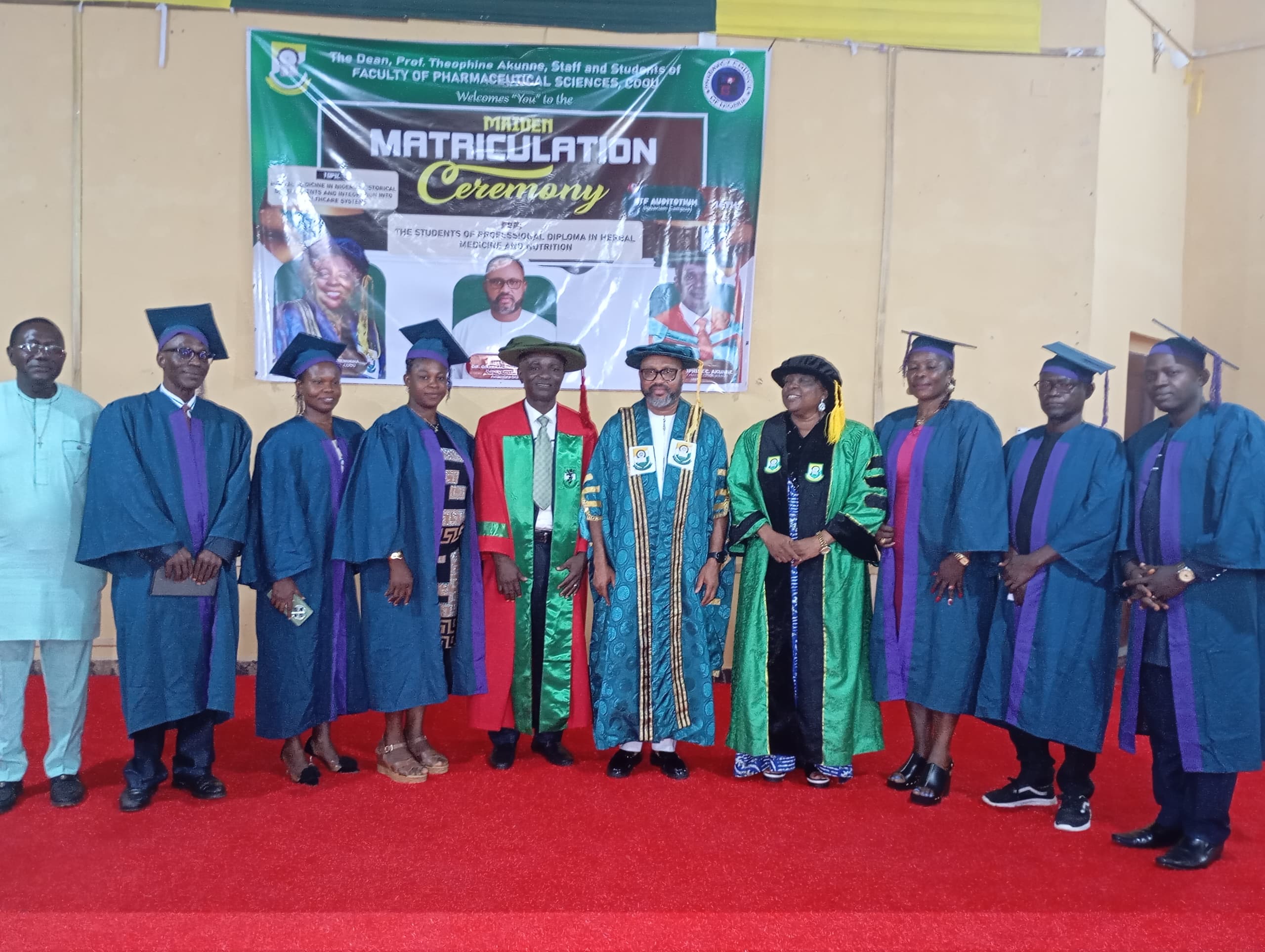Anambra State Government on Thursday, reiterated its commitment to exploring the potentials of herbal medicine and strengthening policies to standardize operations of the practitioners, in line with global best pratices.
The State Governor, Prof Chukwuma Soludo disclosed this through the state deputy governor, during the maiden matriculation ceremony of students of the newly-introduced Professional Diploma in Herbal Medicine and Nutrition at Chukwuemeka Odumegwu Ojukwu University, Igbariam.
The academic program, an initiative of the university’s Faculty of Pharmaceutical Sciences, presents the opportunity for academic research into the potentials of herbal medicine and how it can be explored for healthy living and medical purposes.
The Governor, who acknowledged the critical role herbal medicine plays in healthcare delivery, stressed the need for collective efforts to reposition the sector to meet global standards.
“The WHO has a plan that will span from 2025 to 2034, to develop the herbal medicine and integrate it into the core practice of medicine.
“One of my dreams is to build a research institute for herbal medicine in the university and we have people who can do it.
“For us, the policy drives, the research, and documentation of the results, will continue to be elusive if we do not involve the institutions.
“That is why this programme is very important,” he said.
In her remark, the Acting Vice-Chancellor of the University, Professor Kate Omenugha, while describing the initiative as a strategic move to harness academic knowledge in transforming society, congratulated the matriculating students and commended their decision to be among the pioneers working to provide lasting solutions to the challenges facing the herbal medicine sector.
According to her, the idea behind the program is also to begin to create initiatives that can help the state, Nigeria and Africa stamp its feet at the global level as a solution provider.
She said, “There are so many natural medicinal stuffs that can address the numerous health challenges faced by our people.
“When people talk about internationalization of our university system, it is wrong, because we are trying to say that it is only in abroad that we can learn things. But that is not true.
“We have to use words that show that we have something that is exportable.
“There is a need for us as a university to do research and explore partnerships with the people outside the community, to provide answers to the teething peculiar problems of our society.”
For the Dean, Faculty of Pharmaceutical Sciences of the institution, Professor Theophine Akunne, the program aligns with the World Health Organization, WHO’s global plans for herbal medicine development.
He described it as a knowledge-rich curriculum that emphasizes the identification, formulation, and standardization of herbal products, even as he appealed to the Anambra State Government for continued support of the initiative to ensure sustainability and impactful outcomes.



